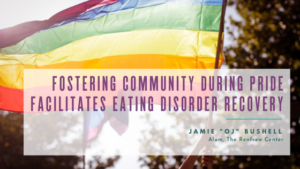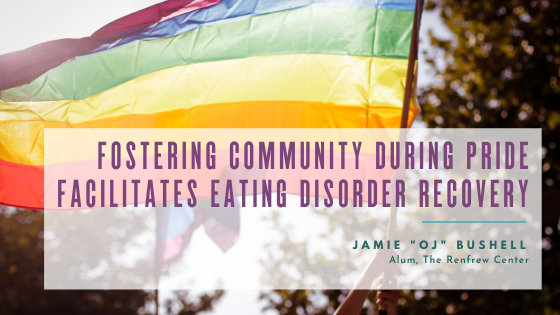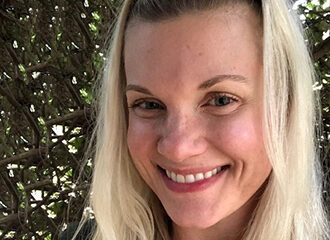By: Jamie “OJ” Bushell, alum of The Renfrew Center
 Pride Month is an opportunity to reinforce the importance of community, allyship, and celebration. Pride festivals and parades represent safe(r) spaces for folks to connect with others that accept them and celebrate who they are. Pride, in this sense, provides a platform for visibility to raise awareness of issues and to recognize the historical context that led to this point.
Pride Month is an opportunity to reinforce the importance of community, allyship, and celebration. Pride festivals and parades represent safe(r) spaces for folks to connect with others that accept them and celebrate who they are. Pride, in this sense, provides a platform for visibility to raise awareness of issues and to recognize the historical context that led to this point.
Since eating disorders impact LGBTQIA+ communities at a disproportionately higher rate than their cisgender, heterosexual peers, it’s crucial that we, as an eating disorder community, create discourse around LGBTQIA+ issues.
As we know, eating disorders thrive in isolation, so it makes sense that community or connectedness may act as a protective factor against eating disorders in the LGBTQIA+ population.
After a year of social distancing and uncertainty, building a sense of community and support is essential right now, albeit difficult for some folks. Here are some ways LGBTQIA+ folks can cultivate a sense of community during Pride:
→ Follow fat positive LGBTQIA+ activists on social media
→ Share your recovery and/or gender discovery story (if you feel safe to do so)
→ Lean on your support system
→ Advocate for social change
→ Attend a Pride celebration (even virtually!)
→ Attend a LGBTQIA+ eating disorder support group
Jamie “OJ” Bushell (they/them) is in recovery from an eating disorder and is the co-founder of thirdwheelED, a blog and social media platform that documents eating disorder recovery through a queer lens. OJ writes about the intersectionality of eating disorders, trauma, sexuality, and gender identity/expression. OJ uses their experience of seeking treatment for their eating disorder as a queer person to help raise awareness of the need for culturally responsive and affirming treatment and recovery support services for queer communities.



